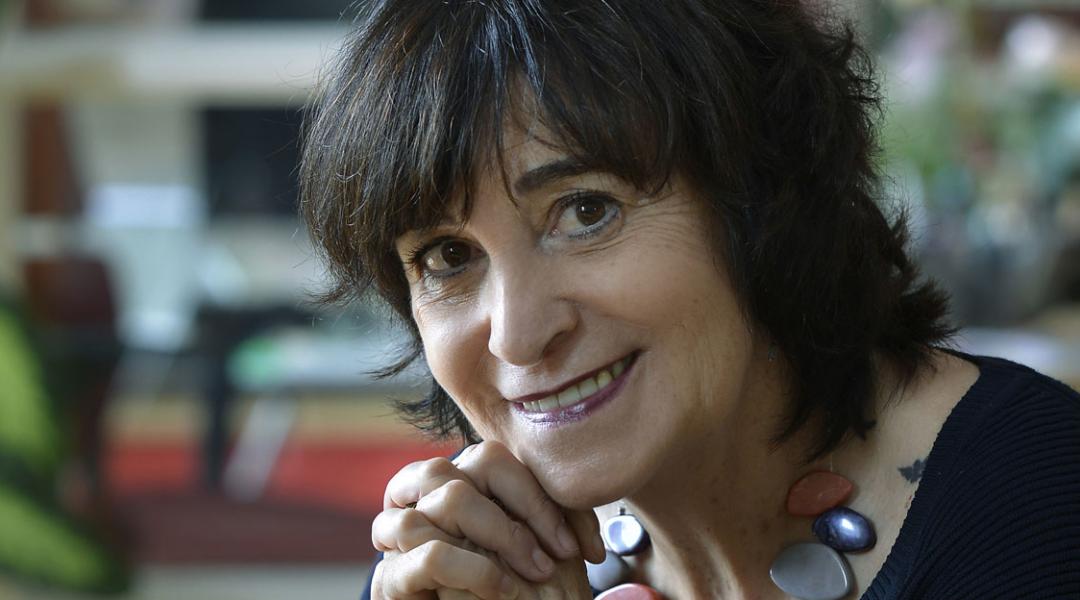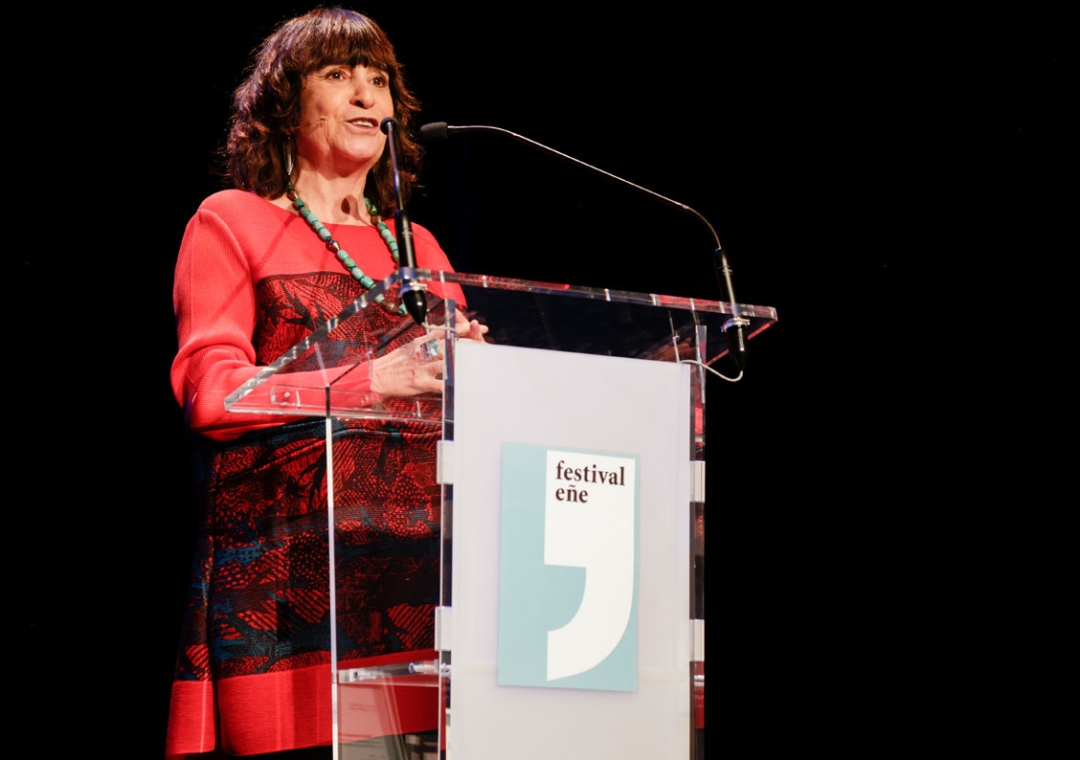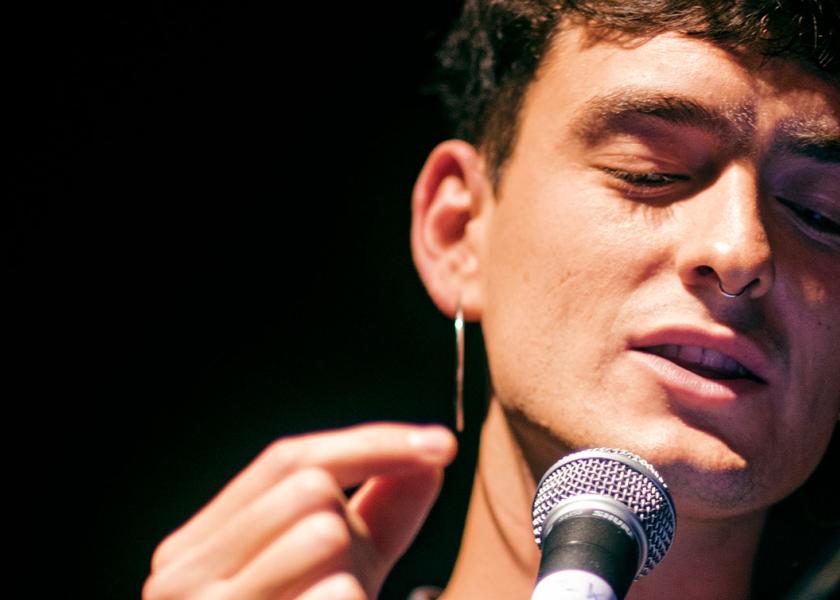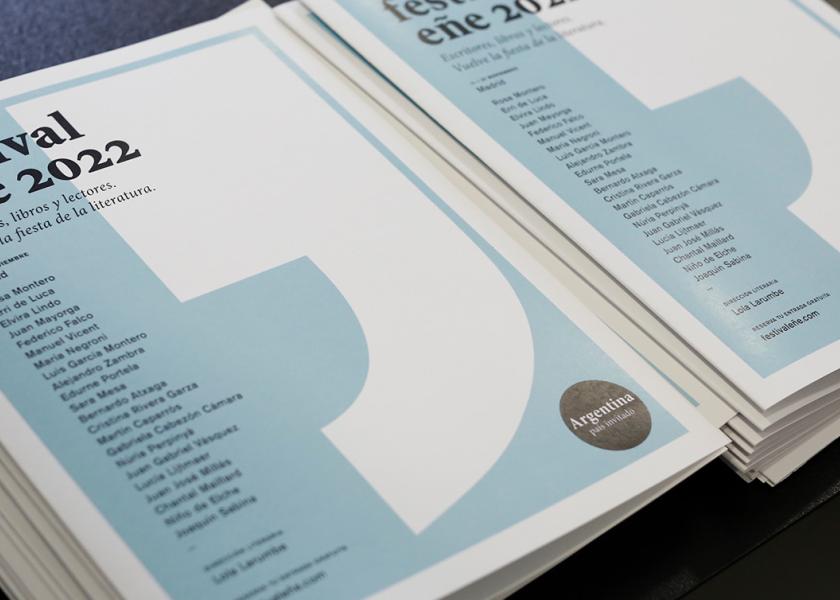Rosa Montero
Playing with creativity

This journalist and writer Rosa Montero has just received the 2022 Festival Eñe Award in recognition of her entire career. Nevertheless, for her, the greatest reward is writing one (or several) of the three thousand books an avid reader will devour in their lifetime. Her latest, 'El peligro de estar cuerda' —in which she unravels the complexities of the human mind—, is another testament to her unquenchable talent.
As a child, writer Rosa Montero (Madrid, 1951) was afraid of a little decorative copper cauldron they had at home. Every night, she’d ask her mother to hide it, because she’d read that copper was poisonous and she was afraid of sleepwalking —a disease that never suffered—, licking it, and falling ill. Mysteries of the human mind. In her latest book, El peligro de estar cuerda, Montero looks for answers to the ins and outs of the human mind, where creativity and talent live. This author of best-sellers like La buena suerte, Historia del Rey Transparente or La ridícula idea de no volver a verte has just received the 2022 Festival Eñe Award, which sits alongside other awards like the Spanish National Prize for Journalism (1980) or the National Prize for Spanish Literature (2017).
In El peligro de estar cuerda you declare that we’re all a bit odd. In your case, when did you realise you were different?
It’s in the minute details that add up and make you realise something’s up. Normal doesn't exist, but this isn’t new. A 2018 study from the Yale University Psychology Department assured that what we’ve been told is “normal” is nothing more than a statistical average of all human beings. Depending on each sensibility, each person’s hang-ups —like my fear of copper cauldrons— you align more or less with that average and perceive the difference. Having a mind full of images, as is my case, leads to this.
How does a mind full of images work?
What usually happens is that children’s minds are chock-a-block full of images and then, during adolescence, neural pruning takes place so that we can focus on the essentials for survival. It is estimated that 20% of humanity skips this pruning stage: people with mental illnesses and those of us who work on creative endeavours with more or less success. My mind is still full of images, it’s wired differently to most people’s. It comes at a steep price, but I’d pay whatever it takes to keep my mind like this. Being a novelist is still being a child and playing with a huge toy: creativity.
“Being a novelist is still being a child and playing with a huge toy: creativity”
You suffered panic attacks from the age of 17, but after you published your first novel they disappeared. What happened?
I've been writing as a journalist since I was 19, but when I turned 30, coinciding with my first novel, I let go of my fear of fear itself. You have to learn to live with your emotional baggage, and fiction helps you do that. Journalism is an external voice, society’s voice, whereas fiction comes from your dark place, it’s a kind of controlled delusion. For another person to read what you write and tell you that they also feel emotions like that allows you to connect to reality in a healthier way.
After finding answers in El peligro de estar cuerda, what would you like to write next?
I have three books in mind... But since I haven’t stopped travelling and working, I haven’t moved forward with any of them. One of them is the fourth instalment of the Bruna Husky series, which ended at a point (Los tiempos del odio) that I’m really curious about and I’d like to know what happens next, but I need to write it to find out. Another will be a contemporary novel, like La buena suerte, for which I already have several notes, and the third will be another "artefact", a mixture of fiction and reality, on a beautiful theme.

On the 19th of November Rosa Montero received the 2022 Festival Eñe Award. © Sebastián Bejarano
Do you think talent is born or made?
A series of circumstances precedes the creative work. The Goncourt brothers used to say that literature is an innate ability and an acquired difficulty. All of us who write for a living have that innate ability because we started to play with words as children, but writing is a skill you learn. Throughout my life, I’ve seen a lot of talented people come to nothing. To make it as a novelist takes a lot of hard work, it’s a long-distance race. You need the tenacity of a stalactite.
How do the stories from your novels come about?
There are two kinds of novelists; you either have a compass or a map. Compass writers start writing without knowing where it’ll take them. Map writers need to map everything out before they start writing. I’m a mixture of the two. You don't choose stories, they choose you; when they start to affect you so much that they need to spill out, that you need to tell them. That’s how a novel is born. It’s what I call the “hatchling”. I take notes by hand, with a fountain pen in blank notebooks, and this can take me two years. At the end of that period, the structure is particularly important to me, so I start to make maps of the novel on cardboard and start considering chapter combinations. When the structure is clear, I sit down at my computer.
“To make it as a novelist takes a lot of hard work, it’s a long-distance race. You need the tenacity of a stalactite”
And how are your characters born? Pablo, for example, who gets off a train in the middle of nowhere in La buena suerte.
They just appear, like stories. You don’t know them at the beginning, but they tell you the story of who they are and the novel sort of builds itself. The character of Pablo emerged during a trip. I was writing on my laptop on a high-speed train to Málaga and the train stopped between Puertollano and Córdoba. I saw, as in the novel La buena suerte goes, a house with a little balcony that was for sale and the first thing I thought was: “Who’d want to buy a house here?” A question immediately came to mind: “What if...?”.
Is that “what if...?” the key that opens the door to novels?
Of course, it opens a world of possibilities. What if a train passenger lifted his gaze, saw this flat, bought it, locked himself in there, and never reached his destination? I didn’t know anything about the story when that question popped into my head, but I knew it’d be the beginning of a novel.
What do you think when you’re on the train and you see someone reading one of your books?
I feel so grateful, you can’t even imagine. There’s a book by Clara Obligado, I can't remember the title now, about literary essays, and in it she makes a simple calculation: if someone read one book a week between the ages of eight and 80, they’d only read three thousand books in their lifetime. I thought that if an avid reader only ever gets around to reading three thousand books, it’s incredible that they choose one of mine. It’s like winning the lottery! So, when I see one of these readers on the train, I feel really grateful and, although I avoid saying anything, I want to get up and give them a kiss!


